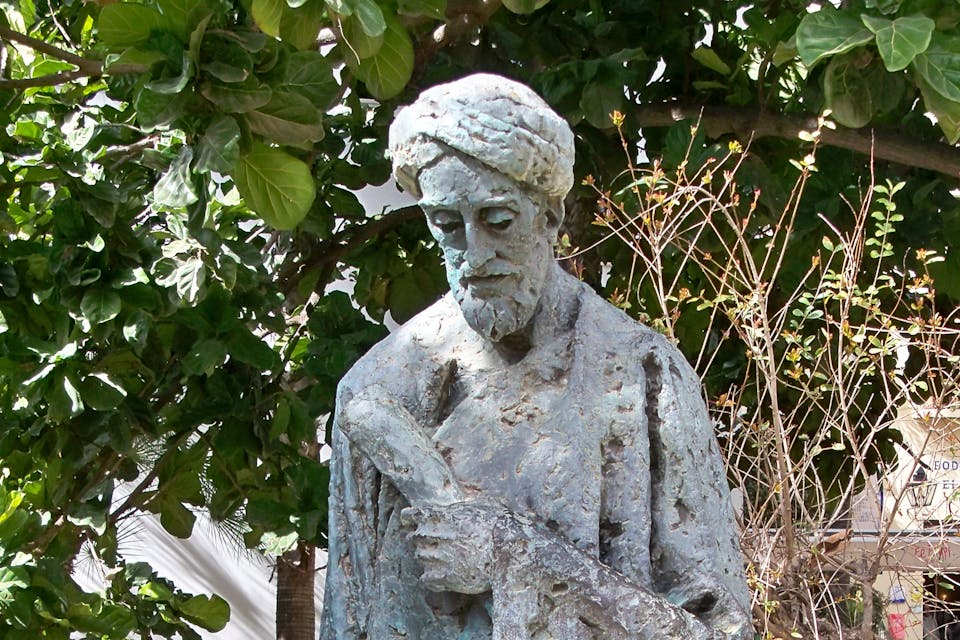
August 11, 2020
One of the Greatest Minds of Medieval Spanish Jewry
Medieval Spain produced many Jewish geniuses. The poet and philosopher Solomon Ibn Gabirol, born 1000 years ago, wrote poetry that is still sung in synagogues all over the world.
This is the fourth in a series of occasional essays by David Wolpe on lesser-known figures in Jewish history. The first, on the biblical king Josiah, the second, on the talmudic figure Bruriah, and the third on the philosopher Saadya Gaon, are available here.
In my junior year of college, I studied in Edinburgh and took courses in English and Scottish literature. I wrote a letter to my father, talking about my enthusiasm for the poets Wordsworth and Burns and the other greats of the English canon. His response was memorable. He told me he was glad I appreciated their works, but that I should never forget that English poetry became the poetry of the world “on the backs of British soldiers” and that we Jews too had our great poets, even if our poets had no army to bring their works to the world.
We are about to mark the thousandth anniversary of the birth of a great poet and philosopher of Israel. Solomon Ibn Gabirol was born in late 1021 or early 1022. Although too little known even among many Jews, this tortured spirit wrote a work of philosophy that was studied for a millennium by Christians who did not know he was a Jew. Remarkably, his greatest achievement was not in philosophy at all but in poetry. Ibn Gabirol’s poems became part of Jewish liturgy, enduring this day, especially in the Sephardi world. It is time to revisit the life and work of this prodigious, short-lived genius.